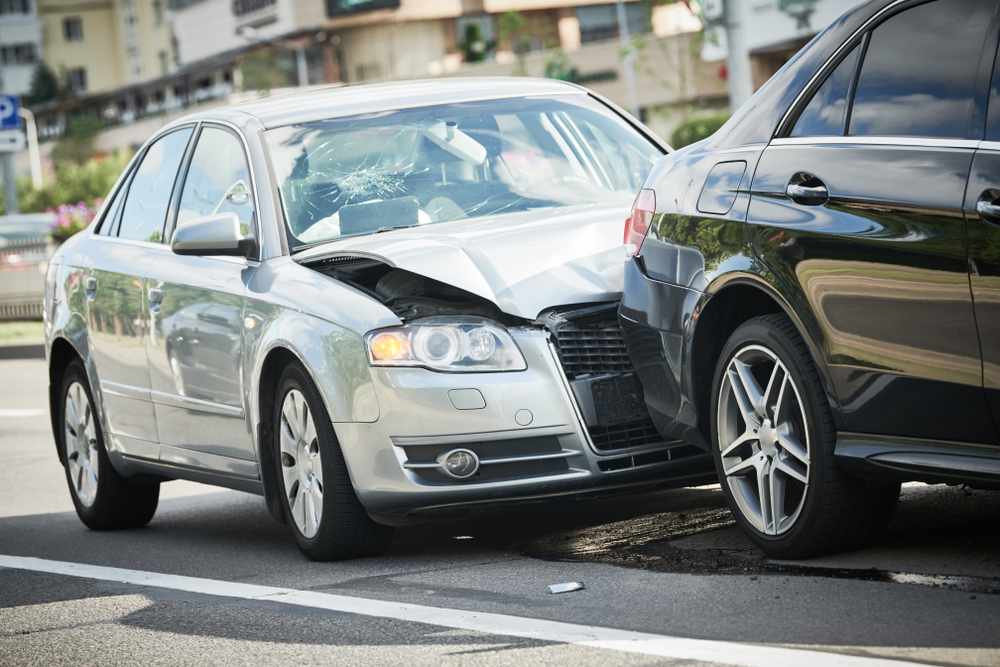
About 1,500 people are killed every year in car accidents on Georgia roadways. If you’re lucky enough to come out of a car accident without injuries to you or the other drivers, you may still be faced with a vehicle repair bill that could cost up to and more than $2,500. Whether you drive often or hardly at all, it is important that you have adequate car insurance in Georgia to protect you if you should get in an accident.
What Insurance Coverage is Required in Georgia?
Like most states, Georgia requires all drivers to carry, at a minimum, liability insurance that will pay for injuries or property damage to another driver and includes:
- $25,000 bodily injury liability per person,
- $50,000 bodily injury liability per accident, and
- $25,000 property damage liability.
Although Georgia doesn’t require drivers to carry comprehensive and collision insurance, it’s a good idea to have it. Liability insurance only covers injuries or vehicle damage to another person, not you. Comprehensive insurance covers any injuries or death you sustain in an accident. Collision coverage helps pay for damages to your vehicle.
It is also a good idea for drivers in Georgia to carry uninsured motorist coverage, even though it is not required by state law. Since Georgia is an “at fault” state, the driver who caused the accident is “liable” to pay for all damages and injuries caused in the accident. However, if that driver is uninsured, those costs are going to fall back on you to pay for out of your own pocket. Uninsured motorist coverage can help pay those costs in the event something like that happens, so you aren’t left footing the bill on your own.
Who is at Fault?
Georgia is an “at fault” state, meaning the driver who is at fault in the accident is liable for all damages or injuries sustained in the accident. However, it may not be clear which driver caused the accident in some cases, and both drivers contributed to it somehow. In these cases, the state’s “modified comparative fault” rule would apply.
Under the Modified Comparative Fault law, drivers can be compensated for damages in an accident even if they were partly to blame. Drivers can receive compensation for an accident even if they are up to 49% responsible. However, if insurance claim adjusters find the driver’s share of the blame is 50% or more, Georgia law prohibits them from recovering any compensation.
Although honesty is the best policy in many cases, don’t voluntarily admit to fault in an accident. Let law enforcement and the insurance companies make that determination.

Victims Have Three Options to Recover Damages
As a third-party liability state, vehicle accident victims in Georgia also have the right to recover damages from at-fault drivers. They can do so in one of three ways:
- File a “first-party claim” for property damage and personal injury with their own insurance company
- File a “third-party claim” for property damage and personal injury with the at-fault driver’s insurance company
- File a civil lawsuit against the at-fault driver
Statute of Limitations Applies to Civil Lawsuits
There is a statute of limitations on the time frame in which you can file a civil lawsuit. You have four years to file a suit to recover costs due to vehicle damage caused in an accident. Lawsuits from car accident injuries or death must be filed within two years.
If you fail to file a lawsuit within the statute of limitations, then you forgo your right to seek compensation for any damages or injuries you received in the accident.
When you file a civil lawsuit after an accident, you file against the other driver, not their insurance company. Their insurance company may step in to represent their client and pay all or part of the damages.
How Will an Accident Affect My Insurance Premiums?
Getting into a car accident in Georgia can be costly, not only because of the costs associated with repairing damages and medical bills if someone is injured or legal fees if the other driver takes you to court.
A car accident can also cause your insurance rates to jump up, especially if you are the driver at fault. In Georgia, car insurance rates can increase by up to 60% following an accident. For example, the average annual car insurance policy in Georgia costs about $2,204, but after an accident, that could go as high as $3,528.
Once insurance rates increase due to an accident, they can remain elevated for several years. If your share of the blame for the accident is under 50%, your insurer may decide not to raise your rates.
Accidents Must be Reported to Law Enforcement and Your Insurer
Under Georgia state law, any accident that results in injury, death, or property damage over $500 must be reported to law enforcement. Law enforcement agencies are required by law to fill out a Uniform Traffic Accident Report and submit it to the Georgia Department of Motor Vehicle Safety. At the accident scene, police officers will check for proof of insurance and talk to those involved with the accident and any witnesses in an effort to determine who was at fault.
The accident report prepared by law enforcement will be used to determine who’s at fault and liable for the accident if that isn’t clear. In some cases, some of the drivers involved in the accident will receive a traffic citation.
You can get a copy of the police accident report through the Georgia Department of Public Safety.
If you are involved in a vehicle accident, it is also your responsibility to notify your insurance company. Most car insurance policies in Georgia include a Notice of Occurrence clause, which requires your to notify your insurer of an accident and cooperate with the investigation whether you were at fault or not.